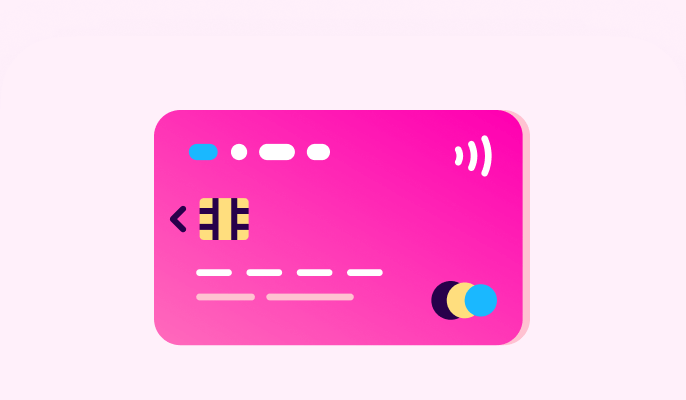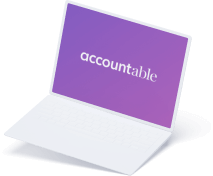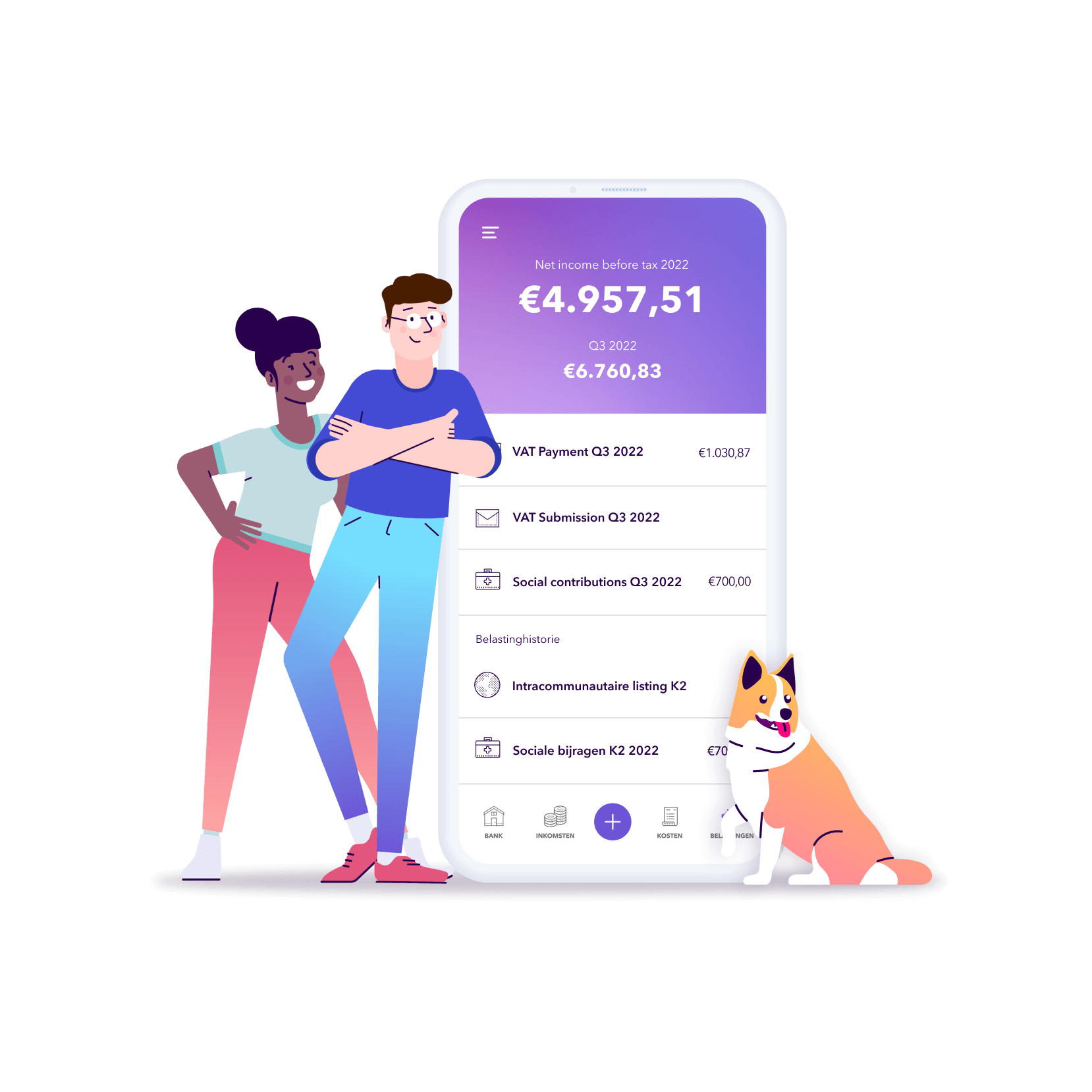
Can you use your (personal) credit card for professional expenses?
Read in 2 minutes
If you’re a sole proprietor in Belgium and occasionally use your credit card for business expenses, there’s no need for concern. In a sole proprietorship, where your personal and business assets are intrinsically linked, it’s entirely permissible to use your credit card for professional costs. But how do you accurately reflect this in your financial records? Let’s dive into it together!
Sole proprietorship: one big happy asset family
In a sole proprietorship, your personal assets are synonymous with your business assets. This is because, in this particular business structure, you’re viewed as an individual with unlimited liability.
Should your business incur debts, your personal assets may be used to settle them. Conversely, the net taxable income of your sole proprietorship is subject to personal income tax (25-50%), and the profit remaining after taxation is entirely yours. This contrasts with corporations where corporate tax (20-25%) is deducted first, followed by personal tax on the salary you draw. This structure requires more strategic tax planning.
This concept of a unified financial pool also applies to expenditures. As a sole proprietor, you can cover business expenses using any payment method: your personal account, business account, cash, or even your credit card. Ultimately, it’s all sourced from the same financial reservoir: yours.
Business account
While not mandatory, maintaining a business bank account is highly recommended for sole traders. It ensures a clear distinction between professional income and expenses from personal transactions. In the event of a tax audit, this separation can be advantageous. Additionally, for both you and your accountant, a business bank account can offer significant clarity.
Navigating credit card expenses
Even with a dedicated business account, there can be instances where personal and business expenses overlap. Consider business costs settled with a credit card, simply because no alternative was available. Some subscription services like OpenAI (Chat-GPT), Canva, Adobe, and even Spotify (which is tax-deductible, by the way!) necessitate monthly or yearly credit card payments.
Many entrepreneurs, particularly sole traders, don’t possess a distinct business credit card (yet). As a result, they often resort to their personal cards for such expenses. While not detrimental, this can make identifying and associating specific transactions to business expenses more challenging.
Efficiently manage your credit card expenses with Accountable
If you’re an existing Accountable user, you’re aware that you can associate up to five different bank accounts with your profile. This facilitates the process of linking transactions to business expenses, ensuring your accounts remain organised and compliant. And in the event of a tax audit, you’re well-prepared.
We’ve recently enhanced our app. Now, you can also link your credit card to Accountable. The process is straightforward: upload your credit card statement, and we handle the rest. Save time by eliminating manual entry of credit card transactions and focus on your business’s core activities.
Watch this video to learn how to integrate a credit card with Accountable 👇
Our Tax Coaches are here to answer every question
If you have questions or encounter challenges while linking your credit card, please reach out to our Tax Coaches for guidance. ✨
Not yet using Accountable? Experience Accountable with our 14-day trial. Following the trial, you can opt for either a free or premium package.
Join the community of 25,000 Belgian entrepreneurs who trust Accountable. Explore it today! 💜
Did you find what you were looking for?
Happy to hear!
Stay in the know! Leave your email to get notified about updates and our latest tips for freelancers like you.
We’re sorry to hear that.
Can you specify why this article wasn’t helpful for you?
Thank you for your response. 💜
We value your feedback and will use it to optimise our content.








